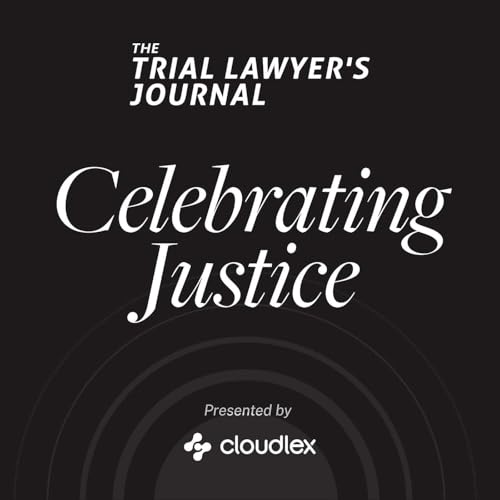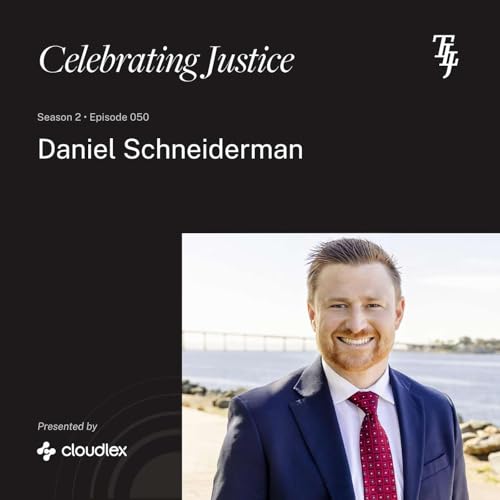
Celebrating Justice
カートのアイテムが多すぎます
カートに追加できませんでした。
ウィッシュリストに追加できませんでした。
ほしい物リストの削除に失敗しました。
ポッドキャストのフォローに失敗しました
ポッドキャストのフォロー解除に失敗しました
-
ナレーター:
このコンテンツについて
Welcome to "Celebrating Justice," the podcast that shines a spotlight on top trial lawyers, their career and the cases that matter most.
Each episode goes beyond the courtroom drama to gain insights into the personal journeys of each guest. From early inspirations and pivotal moments that steered them toward becoming trial lawyers, to the hurdles they've overcome in pursuit of justice, the podcast offers a unique glimpse into the dedication and perseverance required in the legal profession. Our episodes cover a wide range of topics, including personal injury, civil rights, medical malpractice, and much more.
"Celebrating Justice" is produced not just for legal professionals but for anyone intrigued by the complexities of law and its impact on society. Whether you're drawn to the strategic gamesmanship of trial work or moved by stories of advocacy and reform, "Celebrating Justice" promises rich, informative, and truly inspiring content.
© 2025 Trial Lawyer's Journal-
 2025/10/3030 分
2025/10/3030 分カートのアイテムが多すぎます
ご購入は五十タイトルがカートに入っている場合のみです。カートに追加できませんでした。
しばらく経ってから再度お試しください。ウィッシュリストに追加できませんでした。
しばらく経ってから再度お試しください。ほしい物リストの削除に失敗しました。
しばらく経ってから再度お試しください。ポッドキャストのフォローに失敗しました
ポッドキャストのフォロー解除に失敗しました
-
 2025/10/2319 分
2025/10/2319 分カートのアイテムが多すぎます
ご購入は五十タイトルがカートに入っている場合のみです。カートに追加できませんでした。
しばらく経ってから再度お試しください。ウィッシュリストに追加できませんでした。
しばらく経ってから再度お試しください。ほしい物リストの削除に失敗しました。
しばらく経ってから再度お試しください。ポッドキャストのフォローに失敗しました
ポッドキャストのフォロー解除に失敗しました
-
 2025/10/1615 分
2025/10/1615 分カートのアイテムが多すぎます
ご購入は五十タイトルがカートに入っている場合のみです。カートに追加できませんでした。
しばらく経ってから再度お試しください。ウィッシュリストに追加できませんでした。
しばらく経ってから再度お試しください。ほしい物リストの削除に失敗しました。
しばらく経ってから再度お試しください。ポッドキャストのフォローに失敗しました
ポッドキャストのフォロー解除に失敗しました


